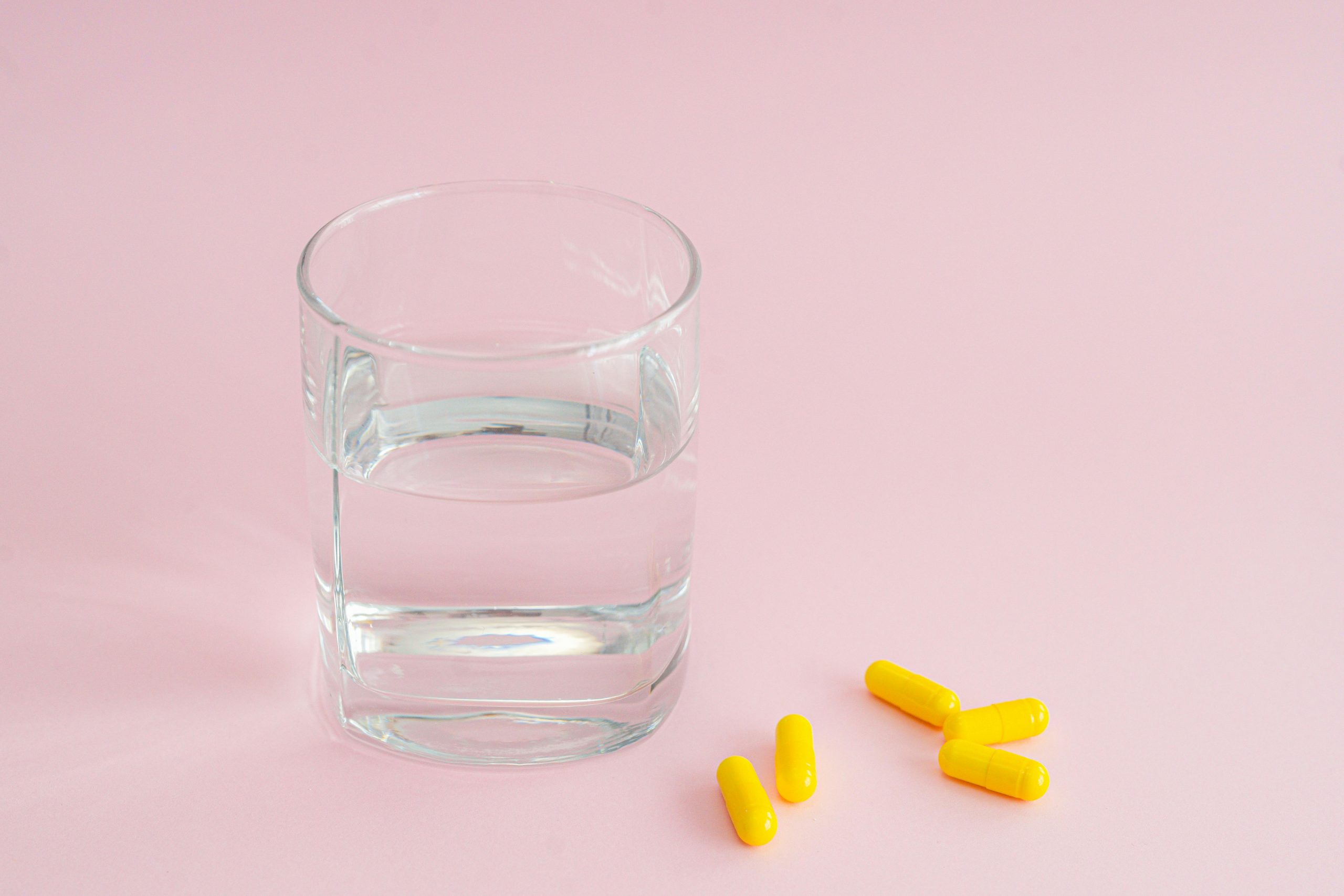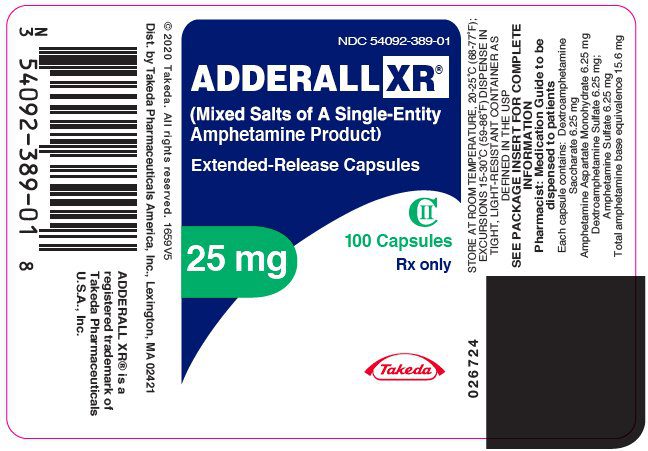
- What Is Adderall?
- Brief History of Adderall
- How to Use Adderall?
- What Should Be Done If an Overdose Occurs?
- To Whom Is It Contraindicated?
- Interactions with Other Medications
- Available Forms
- Famous Adderall Brands
- Why Do People Use It In Sports?
- Websites and Articles to Delve into the Benefits of Adderall
- Disclaimer
What Is Adderall?
Adderall is a prescription medication that contains amphetamine and dextroamphetamine, which are stimulant drugs that affect chemicals in the brain and nerves that contribute to hyperactivity and impulse control. It is commonly prescribed to treat attention deficit hyperactivity disorder (ADHD) and narcolepsy.
Adderall works by increasing the levels of certain neurotransmitters, such as dopamine and norepinephrine, in the brain. This helps improve focus, attention, and impulse control in individuals with ADHD. The medication is available in both immediate-release (IR) and extended-release (XR) formulations.
While Adderall can be effective in managing symptoms for those with legitimate medical conditions, its misuse is a concern. Some individuals without ADHD may abuse Adderall for its stimulant effects, hoping to enhance cognitive performance or productivity. This misuse can lead to serious health risks, including addiction, cardiovascular issues, and psychological side effects.
It is crucial to use Adderall only as prescribed by a healthcare professional and to be aware of its potential for misuse and dependence. Regular monitoring and communication with a healthcare provider are essential when taking this medication.
Brief History of Adderall
Adderall has its roots in the development of amphetamine compounds, which have stimulant effects on the central nervous system. The early 20th century saw the synthesis of amphetamine, and by the 1920s and 1930s, pharmaceutical companies began marketing amphetamine-based products for various purposes, including as decongestants and to treat conditions like narcolepsy and obesity.
In the 1960s, a pharmaceutical company named Rexar Pharmaceuticals developed a combination of amphetamine salts, which would later become the basis for Adderall. The U.S. Food and Drug Administration (FDA) approved Adderall for use in the treatment of attention deficit hyperactivity disorder (ADHD) in 1996.
Adderall’s formulation typically consists of a mixture of amphetamine salts, primarily amphetamine aspartate, amphetamine sulfate, dextroamphetamine saccharate, and dextroamphetamine sulfate. The combination of these salts is believed to provide a more gradual onset and smoother duration of action compared to single-salt amphetamine medications.
Since its approval, Adderall has become one of the most prescribed medications for ADHD. However, its use has been a subject of debate and concern due to the potential for misuse, abuse, and the development of dependence. The medical community continues to research and refine treatments for ADHD while balancing the benefits and risks associated with medications like Adderall.
Here’s a brief history of Adderall presented in a table format:
| Year | Event |
|---|---|
| 1929 | Amphetamine, the basis for Adderall, synthesized |
| 1960s | Rexar Pharmaceuticals develops amphetamine salts combination |
| 1996 | U.S. FDA approves Adderall for ADHD treatment |
| Present | Adderall remains widely prescribed for ADHD, but concerns about misuse and dependence persist |
How to Use Adderall?
The use of Adderall should always be directed by a qualified healthcare professional, typically a doctor or psychiatrist. It is a prescription medication, and adherence to the prescribed dosage and instructions is crucial. Here are general guidelines for the use of Adderall:
- Prescription Only:
- Adderall is available only with a prescription from a licensed healthcare provider. Do not use Adderall without proper medical guidance.
- Dosage:
- The dosage is individualized based on the specific needs and response of the patient. It is typically started at a low dose and adjusted as necessary.
- Timing:
- Take Adderall as directed by your healthcare provider. It is usually taken one to three times a day, with or without food. Taking it in the morning is common to avoid potential insomnia.
- Swallow Whole:
- Swallow the extended-release capsules or tablets whole. Do not crush, chew, or break them, as it can affect the extended-release mechanism.
- Avoid Late-Day Doses:
- Avoid taking Adderall late in the day to prevent potential insomnia and sleep disturbances.
- Regular Monitoring:
- Regularly follow up with your healthcare provider for monitoring and adjustments to the treatment plan. This is especially important during the initial phases of medication use.
- Communication:
- Keep an open line of communication with your healthcare provider regarding any side effects, concerns, or changes in your condition.
- Avoid Alcohol:
- It is generally advisable to avoid alcohol while taking Adderall, as it can amplify certain side effects and may have adverse interactions.
- Abrupt Cessation:
- Do not stop taking Adderall abruptly without consulting your healthcare provider, as this can lead to withdrawal symptoms.
- Potential for Misuse:
- Be aware of the potential for misuse and dependence. Only use Adderall as prescribed, and do not share it with others.
Remember, individual responses to medication can vary, and it’s essential to follow your healthcare provider’s instructions closely. If you have any questions or concerns about the use of Adderall, consult with your healthcare professional for personalized advice.
What Should Be Done If an Overdose Occurs?
If an overdose of Adderall is suspected, it is crucial to seek immediate medical attention. An overdose of stimulant medications like Adderall can have serious and potentially life-threatening consequences. Here are some general steps to take if an overdose is suspected:
- Call Emergency Services:
- Dial emergency services immediately. In the United States, this would typically be 911. Provide all relevant information, including the name of the medication (Adderall), the strength of the dosage, and any symptoms the person is experiencing.
- Do Not Delay:
- Time is critical in cases of overdose. Do not wait for symptoms to worsen before seeking help.
- Stay Calm:
- While waiting for emergency services, try to keep the person calm. Encourage them to remain still and avoid any unnecessary physical activity.
- Provide Information:
- If possible, provide emergency responders with information about the person’s medical history, including any pre-existing conditions and medications they are taking.
- Do Not Attempt Self-Treatment:
- Do not attempt to treat the overdose at home with home remedies or by inducing vomiting unless explicitly instructed to do so by emergency services. Improper interventions can worsen the situation.
Overdose symptoms may include severe restlessness, confusion, hallucinations, rapid breathing, panic, aggressiveness, muscle pains or weakness, and, in extreme cases, seizures or loss of consciousness. It is important not to ignore any signs of overdose, as prompt medical attention can significantly improve the outcome.
Remember, the information provided here is general guidance, and specific actions may vary depending on the individual circumstances. Always follow the advice of emergency medical professionals and healthcare providers in cases of suspected overdose.
To Whom Is It Contraindicated?
Adderall is contraindicated (not recommended) for certain individuals due to potential health risks and interactions. Contraindications may vary based on individual health conditions, medications, and other factors. It is crucial to consult with a healthcare professional before using Adderall. Some common contraindications include:
- Cardiovascular Issues:
- Adderall is generally contraindicated for individuals with a history of heart problems, including heart disease, coronary artery disease, heart rhythm abnormalities, and structural heart abnormalities.
- Hypertension:
- People with uncontrolled high blood pressure are typically advised against using Adderall due to its stimulant effects, which can increase heart rate and blood pressure.
- Hyperthyroidism:
- Adderall may exacerbate the symptoms of hyperthyroidism, and its use may be contraindicated in individuals with an overactive thyroid.
- Glaucoma:
- Adderall can increase intraocular pressure, and its use is contraindicated in individuals with certain types of glaucoma.
- History of Substance Abuse:
- Individuals with a history of substance abuse or addiction may be at an increased risk of misusing or becoming dependent on Adderall. Healthcare providers may exercise caution or avoid prescribing it in such cases.
- Severe Anxiety or Agitation:
- Adderall is a stimulant that can exacerbate symptoms of anxiety and agitation. It may be contraindicated in individuals with severe anxiety disorders.
- Monoamine Oxidase Inhibitors (MAOIs):
- The concurrent use of Adderall and MAOIs, or use within 14 days of discontinuing MAOIs, is contraindicated due to the risk of a potentially life-threatening reaction.
- Pregnancy and Breastfeeding:
- The use of Adderall during pregnancy and breastfeeding is a topic that requires careful consideration. Healthcare providers will weigh the potential risks and benefits in such situations.
- Allergic Reactions:
- Individuals with a known hypersensitivity or allergic reaction to amphetamine or related compounds should avoid Adderall.
It’s essential to provide your healthcare provider with a comprehensive medical history and a list of all medications, supplements, and substances you are currently taking. This allows them to make an informed decision about whether Adderall is appropriate for you. Never self-prescribe or take medications without proper medical guidance.
Interactions with Other Medications
Adderall can interact with various medications, and it is crucial to inform your healthcare provider about all the medications, supplements, and substances you are taking. Drug interactions can affect the efficacy and safety of medications. Here are some notable interactions with Adderall:
- Monoamine Oxidase Inhibitors (MAOIs):
- Concurrent use of Adderall with MAOIs or within 14 days of discontinuing MAOIs is contraindicated. This combination can lead to a potentially life-threatening hypertensive crisis.
- Selective Serotonin Reuptake Inhibitors (SSRIs) and Serotonin-Norepinephrine Reuptake Inhibitors (SNRIs):
- Combining Adderall with SSRIs or SNRIs may increase the risk of serotonin syndrome, a potentially serious condition characterized by symptoms such as confusion, hallucinations, seizure, extreme changes in blood pressure, increased heart rate, fever, excessive sweating, shivering or shaking, blurred vision, muscle spasm or stiffness, tremor, incoordination, stomach cramp, nausea, vomiting, and diarrhea.
- Antacids:
- Some antacids containing compounds like magnesium or aluminum can decrease the absorption of Adderall. It is advisable to separate the administration of antacids and Adderall by a few hours.
- Acidic Agents:
- Substances that increase the acidity of the urine (e.g., ascorbic acid or vitamin C) may increase the excretion of Adderall and reduce its effectiveness.
- Urinary Alkalinizers:
- Drugs that increase the pH of urine may decrease the excretion of Adderall and increase its concentration in the body.
- Blood Pressure Medications:
- Adderall can increase blood pressure and heart rate, so caution is needed when combining it with medications that also affect blood pressure.
- Antidepressants and Antipsychotics:
- Some medications in these classes may interact with Adderall. It’s important for your healthcare provider to monitor and adjust dosages accordingly.
- Anticonvulsants:
- Adderall may reduce the effectiveness of some anticonvulsant medications.
This list is not exhaustive, and individual responses to medication combinations can vary. Always consult your healthcare provider before starting or stopping any medications and inform them of all substances you are currently taking to ensure safe and effective treatment.
Available Forms
Adderall is available in different forms, primarily distinguished by their duration of action. The two main formulations are immediate-release (IR) and extended-release (XR). Both formulations contain a combination of amphetamine salts, but the proportions and release mechanisms differ. Here are the main available forms:
- Immediate-Release (IR):
- This formulation is typically labeled as Adderall.
- It is designed to provide a rapid onset of action.
- The effects usually start within 30 to 60 minutes after ingestion and may last for about 4 to 6 hours.
- It is often prescribed for multiple doses throughout the day.
- Extended-Release (XR):
- This formulation is commonly labeled as Adderall XR.
- It is designed to provide a more gradual onset of action and a longer duration of effectiveness.
- The extended-release beads in the capsule allow for a sustained release of the medication over an extended period.
- Adderall XR is typically taken once daily in the morning and can provide effects for about 10 to 12 hours.
Both formulations are available in different dosage strengths, allowing healthcare providers to tailor the medication to an individual’s needs. The choice between immediate-release and extended-release forms depends on factors such as the patient’s response to the medication, the desired duration of action, and lifestyle considerations.
It’s important to note that the availability of specific formulations may vary by region and country, and there may be generic versions of Adderall available under different names. Always follow your healthcare provider’s instructions regarding the prescribed formulation, dosage, and administration schedule.
Famous Adderall Brands

Adderall is a brand name for a medication that contains a combination of amphetamine salts. While Adderall itself is a well-known brand, there are also generic versions available. Here are some common brand names associated with the combination of amphetamine and dextroamphetamine:
- Adderall:
- This is the original brand name for the combination of amphetamine and dextroamphetamine. It is available in immediate-release (IR) and extended-release (XR) formulations.
- Adderall XR:
- This is the extended-release formulation of Adderall. It provides a more sustained release of the medication over an extended period, typically lasting for about 10 to 12 hours.
- Mydayis:
- Mydayis is another extended-release formulation that contains the same active ingredients as Adderall. It is designed to provide a longer duration of action, similar to Adderall XR.
It’s important to note that generic versions of Adderall are also available, and these are often marketed under the names of the active ingredients, amphetamine and dextroamphetamine. Generic versions may be produced by different pharmaceutical companies and may have different brand names.
When using any medication, it’s crucial to follow the guidance of a healthcare professional and use the prescribed brand or generic version. Different formulations may have varying release profiles, and switching between brands should be done under the supervision of a healthcare provider.
Why Do People Use It In Sports?
The use of substances like Adderall in sports without a legitimate medical need is considered unethical and is often prohibited by anti-doping regulations. However, some individuals may misuse stimulant medications, including Adderall, in an attempt to gain a competitive advantage in sports. The potential reasons for such misuse include:
- Cognitive Enhancement:
- Stimulant medications like Adderall can improve focus, attention, and alertness. Athletes may believe that these cognitive enhancements could lead to improved performance, especially in sports that require intense concentration.
- Increased Energy and Endurance:
- Stimulants can boost energy levels and reduce feelings of fatigue. Athletes may use Adderall in the hope of enhancing their endurance and overall physical performance during training or competition.
- Weight Loss:
- Stimulants can suppress appetite, and some athletes might misuse Adderall for its potential to aid in weight loss. This effect may be attractive in sports where weight management is a concern.
- Performance Under Pressure:
- Athletes may use stimulants to help manage stress and anxiety, allowing them to perform better under pressure. This could be particularly relevant in high-stakes competitions.
It’s important to note that the misuse of stimulant medications in sports is associated with various risks and ethical concerns. The World Anti-Doping Agency (WADA) and other sports organizations have strict anti-doping policies that prohibit the use of certain substances, including stimulants, without a valid medical prescription.
Athletes who use prescription medications like Adderall without a legitimate medical need may face serious consequences, including disqualification, suspension, and damage to their reputation. It is crucial for athletes to adhere to anti-doping regulations and to compete on a level playing field based on their natural abilities and training. If an athlete believes they have a medical condition that requires medication, they should consult with a healthcare professional and follow proper medical protocols.
Websites and Articles to Delve into the Benefits of Adderall
The websites offer a range of information on Adderall, including details about its uses, side effects, precautions, and other relevant information. Here’s a summary of the key points from each source:
- WebMD – Adderall Oral:
- Detailed information on uses, side effects, and precautions.
- Includes details on how to use Adderall, potential interactions, and what to discuss with your healthcare provider.
- Drugs.com – Adderall:
- Comprehensive information on Adderall, covering its uses, side effects, dosage, and precautions.
- Provides user reviews and ratings for the medication.
- Wikipedia – Adderall:
- Offers a broad overview of Adderall, including its history, chemical composition, and medical uses.
- References and links to additional sources for further exploration.
- Medical News Today – Adderall:
- Highlights information on Adderall’s uses, side effects, and warnings.
- Provides images of the medication for visual reference.
- Healthline – Adderall:
- Information on uses, dosage, side effects, and precautions for Adderall.
- Includes images of the medication.
- MedlinePlus – Dextroamphetamine and Amphetamine:
- Covers important information about the medication, including its uses and precautions.
- Offers insights into potential side effects and what to do in case of an overdose.
- Mayo Clinic – Dextroamphetamine and Amphetamine (Oral Route):
- Provides a detailed description of Dextroamphetamine and Amphetamine, including its mechanism of action, proper use, and precautions.
- RxList – Adderall Drug:
- Information on Adderall, including its uses, side effects, and dosage.
- Highlights warnings and precautions associated with the medication.
- American Addiction Centers – Long-Term Effects of Adderall:
- Discusses potential long-term effects and risks associated with the use of Adderall.
- ScienceDirect – Adderall:
- Academic information and research on Adderall, covering aspects related to neuroscience.
- GoodRx – What is Adderall?:
- A concise overview of what Adderall is, its uses, and how it works.
- Lee Health – 6 Things to Know About Adderall:
- Provides information on key aspects of Adderall, including its uses and potential side effects.
These sources collectively offer a comprehensive understanding of Adderall, allowing individuals to access reliable information from various perspectives. Always consult with healthcare professionals for personalized advice and guidance.
Disclaimer
The information is solely provided for educational purposes. It is not intended to diagnose, treat, cure, or prevent any disease. Seek the advice of your physician or qualified healthcare provider with any questions you may have regarding a medical condition at all times. Never disregard professional medical advice because of something you have read or learned from this article.






